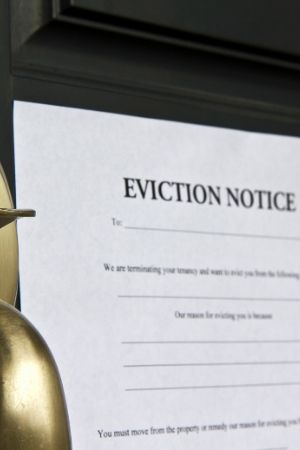The Consumer Financial Protection Bureau (CFPB) has officially backed up the Center for Disease Control’s (CDC) eviction moratorium. The CDC’s moratorium was recently extended through June 30th, making the entire thing last over a year long. With over nine million families having overdue rent, some rental property owners have been struggling to find ways to keep up with their own bills and did not have legal evictions as a way out.
The Consumer Financial Protection Bureau (CFPB) has officially backed up the Center for Disease Control’s (CDC) eviction moratorium. The CDC’s moratorium was recently extended through June 30th, making the entire thing last over a year long. With over nine million families having overdue rent, some rental property owners have been struggling to find ways to keep up with their own bills and did not have legal evictions as a way out.
The eviction moratorium prohibits landlords from evicting tenants on basis that they can’t afford their rent if the tenant has written that they would likely be homeless or forced into a shared living space upon eviction. This would mean most evictions would be illegal during the COVID-19 pandemic, however, its believed that tens of thousands are being illegally evicted each week. The Government Accountability Office believes many of these renters were not well informed and didn’t know that their evictions were illegal.

The eviction moratorium prohibits landlords from evicting tenants on basis that they can’t afford their rent if the tenant has written that they would likely be homeless or forced into a shared living space upon eviction. This would mean most evictions would be illegal during the COVID-19 pandemic, however, its believed that tens of thousands are being illegally evicted each week. The Government Accountability Office believes many of these renters were not well informed and didn’t know that their evictions were illegal.

This is why on April 19th, 2021, the CFPB issued their latest mandate. All “debt collectors” that are evicting or trying to evict a tenant because of nonpayment and overdue fees “must provide tenants who may have rights under the CDC order with clear and conspicuous written notice of those rights.” If you do not provide written explanation of a tenant’s rights, it is a direct violation of the Fair Debt Collection Practices Act, of FDCPA. The CFPB also notes that “this prohibition applies to an agent or attorney acting as a debt collector on behalf of a landlord or owner of the residential property.”
This is why on April 19th, 2021, the CFPB issued their latest mandate. All “debt collectors” that are evicting or trying to evict a tenant because of nonpayment and overdue fees “must provide tenants who may have rights under the CDC order with clear and conspicuous written notice of those rights.” If you do not provide written explanation of a tenant’s rights, it is a direct violation of the Fair Debt Collection Practices Act, of FDCPA. The CFPB also notes that “this prohibition applies to an agent or attorney acting as a debt collector on behalf of a landlord or owner of the residential property.”

The CFPB has stated that this rule doesn’t override more strict laws local states or cities may have, and if your locality does have “more protective” laws, they will still be in effect. For this reason, it is recommended you speak to a local attorney to see how these laws may or may not affect you.

The CFPB has stated that this rule doesn’t override more strict laws local states or cities may have, and if your locality does have “more protective” laws, they will still be in effect. For this reason, it is recommended you speak to a local attorney to see how these laws may or may not affect you.
This rule will be enforced starting May 3rd, 2021, after which all evictions must go through this process.
This rule will be enforced starting May 3rd, 2021, after which all evictions must go through this process.



